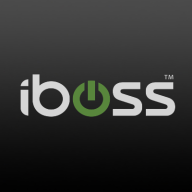


Microsoft Defender for Cloud Apps and Cisco Umbrella both compete in the cloud security sector. Cisco Umbrella appears to have the upper hand due to its strong DNS layer security and broader compatibility in hybrid work environments.
Features: Microsoft Defender for Cloud Apps provides a unified solution that integrates well with Azure and Office 365, offers real-time threat alerts, and supports identity posture management. Cisco Umbrella focuses on DNS layer security, offers comprehensive threat blocking capabilities, and provides a single pane-of-glass for management, making it suitable for remote work security.
Room for Improvement: Microsoft Defender for Cloud Apps could enhance its compatibility with non-Microsoft solutions, improve macOS integration, and reduce false positives. Cisco Umbrella could benefit from advanced malware protection beyond DNS capabilities and improved integration with on-premise solutions. Both could refine their pricing and license management systems.
Ease of Deployment and Customer Service: Microsoft Defender for Cloud Apps is praised for easy integration within the Microsoft suite but has mixed reviews on support response times. Cisco Umbrella supports diverse deployment options and receives positive feedback for its customer service, although users face challenges with licensing clarity.
Pricing and ROI: Microsoft Defender for Cloud Apps adds value when part of the E3 and E5 licenses, offering seamless integration and avoiding on-premises costs. Cisco Umbrella’s pricing is competitive but potentially costly for comprehensive solutions. Both products enhance organizational security, each catering to specific security management needs.



iboss offers a comprehensive security platform designed for diverse use cases such as web filtering, data loss protection, corporate proxy services, and URL filtering.
iboss integrates advanced features to address dynamic security needs, leveraging its strength in SASE, ZTNA, AI initiatives, and cloud integration, while ensuring seamless operations for remote work. It excels in historical forensics, malware protection, and flexible cloud deployments. Users benefit from comprehensive traffic scanning, robust malware detection, and PaaS capabilities that reduce hardware management. An intuitive admin console ensures efficient management with content filtering and low false positives. SSL decryption enhances security, while DLP protects data in AI conversations. Deployment is rapid and scalable, allowing effortless integration with emerging technologies.
What features does iboss offer?
What benefits and ROI should users consider?
iboss finds significant application in sectors such as education, where web filtering for K-12 is crucial, and in corporate environments requiring robust proxy services and URL filtering for network security. Its adaptability is essential in scenarios demanding flexible, decentralized security frameworks, particularly for remote work setups.
Cisco Umbrella delivers rapid DNS security with over 30,000 customers, providing outstanding threat protection and handling more than 600 billion requests daily. It's recognized for high threat efficacy in the SSE domain and integrates elements like SWG, ZTNA, CASB, and more.
Cisco Umbrella is renowned for its effective DNS-layer security against ransomware and phishing. It offers flexible content filtering and integrates seamlessly with existing networks while providing single-pane-of-glass management for centralized monitoring. Its robust threat intelligence and customizable policies are central to its appeal. Users highlight room for improvement in areas like WHOIS data inclusion, malware enhancement, and reporting analytics. Integration with other threat feeds and better client support are requested for more comprehensive coverage.
What are the key features of Cisco Umbrella?Industries implement Cisco Umbrella primarily for DNS-level security, web filtering, and protecting remote employees. It strengthens cybersecurity frameworks by blocking malware and avoiding access to harmful sites. The tool is widely integrated with Active Directory and Cisco Meraki, providing consistent internet security for employees.
Microsoft Defender for Cloud Apps is a comprehensive security solution that provides protection for cloud-based applications and services. It offers real-time threat detection and response, as well as advanced analytics and reporting capabilities. With Defender for Cloud Apps, organizations can ensure the security of their cloud environments and safeguard against cyber threats. Whether you're running SaaS applications, IaaS workloads, or PaaS services, Microsoft Defender for Cloud Apps can help you secure your cloud environment and protect your business from cyber threats.
Reviews from Real Users
Ram-Krish, Cloud Security & Governance at a financial services firm, says that Microsoft Defender for Cloud Apps "Integrates well and helps us in protecting sensitive information, but takes time to scan and apply the policies and cannot detect everything we need".
PeerSpot user, Senior Cloud & Security Consultant at a tech services, writes that Microsoft Defender for Cloud Apps "Great for monitoring user activity and protecting data while integrating well with other applications".
Simon Burgess,Infrastructure Engineer at SBITSC, states that Microsoft Defender for Cloud Apps is "A fluid, intelligent product for great visibility, centralized management, and increased uptime".
We monitor all Cloud Access Security Brokers (CASB) reviews to prevent fraudulent reviews and keep review quality high. We do not post reviews by company employees or direct competitors. We validate each review for authenticity via cross-reference with LinkedIn, and personal follow-up with the reviewer when necessary.